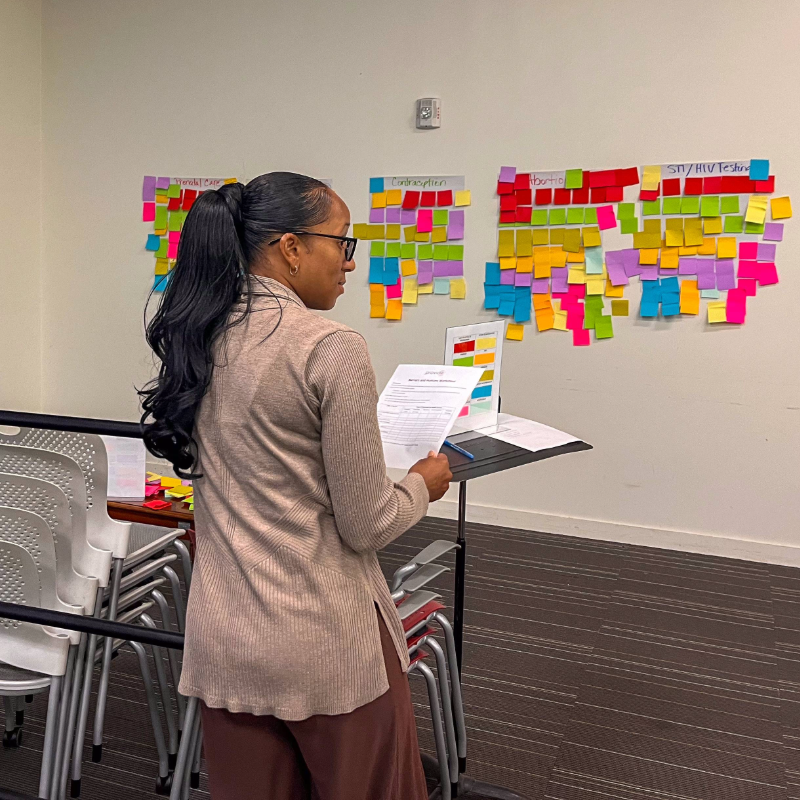Bringing new life into the world can be a profound and transformative experience. However, for Black mothers, this journey often comes with unique challenges and disparities that can impact both their health and the well-being of their babies. In 2024, Black women in the United States are still 3-4x more likely to die from pregnancy related complications than white women. In celebration of Black Maternal Health Week (April 11-17, 2024), we are sharing stories from Black mamas on staff at Provide who have agreed to share their experiences to shine a light on systemic issues.
Removing health disparities will take a concerted effort to dismantle discriminatory practices and prioritize attentive, respectful care that truly listens to and values Black women.
Tiffany Collins, Provide’s Training & Outreach Specialist, is the mother to four children spanning ages 10 to adulthood. In sharing her birthing experiences, she highlights just how dangerous and unwelcoming the healthcare system can be for Black women.
Tiffany gave birth to her first child at the age of 19 and describes that she had very little information about how childbirth “should have” gone. She recalled that her doctor induced her labor nearly two weeks early because he had planned a vacation and refused to let another provider deliver her baby.
“The current healthcare system falls short in so many ways, number one by just failing to listen,” Tiffany said. “Just listen to the stories and to the Black mothers coming forth with these bad experiences.”
By the time Tiffany gave birth to her youngest, she had more understanding of the process, but she still faced challenges. Tiffany shared that while she normally went to a hospital that was predominately Black, she thought she might get a better experience and better staff if she changed to a local predominately white hospital.
Unfortunately, that is not how Tiffany’s story went.
“Eleven years ago, I had a c-section. The delivery room was super small. I was left there for two days. As far as the nurses visiting, there was little to no attention. One nurse was being rude trying to make me walk, after I had stated multiple times that I was in pain. I almost fell and she didn’t even try to catch me,” Tiffany recounts.
In retrospect, Tiffany felt like her experience would have been much different if she had Black nurses who looked like her.
“It was a very unpleasant experience, and I realized I was being mistreated. The nurses were making it seem as if I just wanted pain medicine after the c-section when I was really in pain. The hospital also didn’t take the IV out,” Tiffany added, recalling that she had to take the IV out herself when leaving the hospital.
Experiences like Tiffany’s are far too common: Black women and birthing people are more likely to report disrespectful treatment by providers, including having their pain ignored and concerns about reproductive health dismissed, and report that they must be particularly assertive with providers in order to have their needs met.
For Tiffany, being a mom means “providing the safest environment I can and a better life than I had.” And that will require making healthcare spaces—including and beyond the delivery room—safe, supportive environments for Black people and other people of color.
As Tiffany says, start by truly listening.
Learn More
- Check out our free virtual training, Supporting Black Clients Seeking Pregnancy Referrals.
- Four Ways to Address Racial Disparities in Pregnancy Counseling

